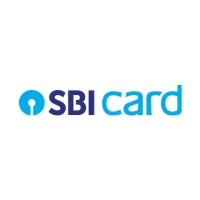
Sheridan Junior High School
Strong
None



Strong
None

Strong
SBI Card was launched in 1998 with the State Bank of India, India's largest bank, as the majority stakeholder. In March 2020, SBI Card was listed on BSE and NSE. Today, SBI Card is India’s largest pure-play credit card issuer with over 19.5 million cards in force, as of September 2024. Its wide array of products and services caters to a diverse range of customer segments across India, right from new-to-credit to super premium. The SBI Card brand is based on the value proposition of 'Make Life Simple'. The proposition manifests in SBI Card’s continuous efforts to simplify the lives of its customers, employees and other key stakeholders. Customer-centricity, supported by the values of trust and transparency, is core to SBI Card’s ethos.
Security & Compliance Standards Overview
No incidents recorded for Sheridan Junior High School in 2025.
No incidents recorded for SBI Card in 2025.
Sheridan Junior High School cyber incidents detection timeline including parent company and subsidiaries
SBI Card cyber incidents detection timeline including parent company and subsidiaries
Last 3 Security & Risk Events by Company
FreshRSS is a free, self-hostable RSS aggregator. Versions 1.26.3 and below do not sanitize certain event handler attributes in feed content, so by finding a page that renders feed entries without CSP, it is possible to execute an XSS payload. The Allow API access authentication setting needs to be enabled by the instance administrator beforehand for the attack to work as it relies on api/query.php. An account takeover is possible by sending a change password request via the XSS payload / setting UserJS for persistence / stealing the autofill password / displaying a phishing page with a spoofed URL using history.replaceState() If the victim is an administrator, the attacker can also perform administrative actions. This issue is fixed in version 1.27.0.
go-f3 is a Golang implementation of Fast Finality for Filecoin (F3). In versions 0.8.6 and below, go-f3 panics when it validates a "poison" messages causing Filecoin nodes consuming F3 messages to become vulnerable. A "poison" message can can cause integer overflow in the signer index validation, which can cause the whole node to crash. These malicious messages aren't self-propagating since the bug is in the validator. An attacker needs to directly send the message to all targets. This issue is fixed in version 0.8.7.
go-f3 is a Golang implementation of Fast Finality for Filecoin (F3). In versions 0.8.8 and below, go-f3's justification verification caching mechanism has a vulnerability where verification results are cached without properly considering the context of the message. An attacker can bypass justification verification by submitting a valid message with a correct justification and then reusing the same cached justification in contexts where it would normally be invalid. This occurs because the cached verification does not properly validate the relationship between the justification and the specific message context it's being used with. This issue is fixed in version 0.8.9.
mkdocs-include-markdown-plugin is an Mkdocs Markdown includer plugin. In versions 7.1.7 and below, there is a vulnerability where unvalidated input can collide with substitution placeholders. This issue is fixed in version 7.1.8.
go-mail is a comprehensive library for sending mails with Go. In versions 0.7.0 and below, due to incorrect handling of the mail.Address values when a sender- or recipient address is passed to the corresponding MAIL FROM or RCPT TO commands of the SMTP client, there is a possibility of wrong address routing or even ESMTP parameter smuggling. For successful exploitation, it is required that the user's code allows for arbitrary mail address input (i. e. through a web form or similar). If only static mail addresses are used (i. e. in a config file) and the mail addresses in use do not consist of quoted local parts, this should not affect users. This issue is fixed in version 0.7.1